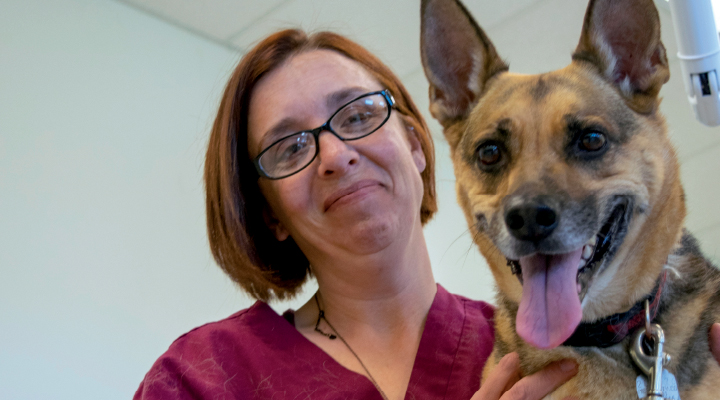Western Colorado Community College’s Veterinary Technology Program Receives Accreditation
Western Colorado Community College’s Veterinary Technician Program is celebrating its American Veterinary Medical Association (AVMA) accreditation. After more than a year of the accreditation process, students will now qualify to sit for their Veterinary Technology National Exam to become certified upon graduation.
New Program Director Anneke Moresco, DVM, is grateful to her predecessor Anita Dennison, DVM, for her efforts in the accreditation process. The lab was remodeled, curriculum had to be approved and other stipulations had to be followed. All of the effort was worth it for the new opportunities this accreditation will give to students.
Along with the accreditation, students will continue to receive hands-on learning opportunities and be taught by faculty who have a wealth of practical experience. Moresco brings with her many years of field experience to share with her students. She’s traveled to many countries to share her knowledge of wildlife reproduction. Her most recent trip was to Brazzaville, Republic of Congo, where she assisted with the reproductive examination of chimpanzees of the Tchimpounga Chimpanzee Rehabilitation Centre.
“Aside from the vet tech program and making sure the students’ needs are being met, we are always looking for educational opportunities for them,” she said. “I was also awarded a grant to travel to Brazil to explore setting up the vet tech field course for WCCC students.”
The vet tech program faculty all work in the field of veterinary medicine. Lori Burns, certified veterinary technician and WCCC instructor, wants to clarify the misconception that vet techs just play with kittens and puppies all day — it’s an important job that can be physically and emotionally challenging, as much as it is rewarding. Burns still works part-time in a clinical setting so she doesn’t lose the skillset she’s attained throughout the years.
As for the students, she couldn’t be prouder of all the change they’ve embraced during the past year.
“They have great ideas on what the program can do for the community and ways to give back,” Burns said.
There are discussions about doing a microchipping clinic and the students recently teamed up with the Street Dog Coalition to assist with vaccines and preventative care for homeless and low-income families’ pets.
